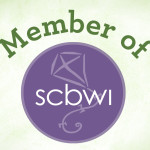I’ve been thinking a lot about the things that are supposed to come naturally, like knowing when to comfort and nurture. Thinking about grief. Thinking about the things that seem contrary to reason, like that my genetic offspring have sprouted feet that jump onto glass tables, climb bookshelves, and drop breakable momentos on the floor. Thinking about resolutions, evolution, and expectations interwoven with fears of failure not just limited to creative work.
A Mother Near or Far
Motherhood in Turkey began for me nearly three years ago, early in the morning in late October. In the history of motherhood, this is but a blip on a radar screen, but it connects me to a legion of mothers that have come before and will come after me. It is humbling to think as women we carry in our eggs future generations, even more so when we know that the grandmothers who birthed our mothers carried the egg that created us. Nestled inside us are generations.
It’s not Mother’s Day. Today of all days I feel an unlikely spokesperson for artfully managing the affairs of home and work as Catherine Yığıt also explores in Housekeeping, though I know out of the turmoil can come something remarkable, like Alia El-Bermani shares in Artist and Mother. So that’s why I’m sharing part of the Op/Ed I wrote for the Hürriyet Daily News for Mother’s Day, 2009. Because the elixir, the elements (and not always happy ones) that connect mother and child happens on a social, cultural, and cellular level as well as an intangible one. This was my way to untangle my threads.
We spent most of this week in the hospital, trying to find out what was causing my son to throw up, and finding that all of us, including our baby daughter, had been hit again by the flu. While at the hospital, I thought that this is parenting. This is motherhood. This is what we do every day – we get up and take on the vast risk that our children will experience life and that it won’t be fatal.
But what happens when the opposite occurs? When a mother leaves before a child is grown? As was the case with my own mother, who died when I was a mousy-haired, buck-toothed pre-kindergartner with a cherubic little blond brother who needed glasses. His glasses broke so many times at the playground from bigger kids bullying him. I was an overprotective sister, bullying in my own right, singling out the boys who hurt my brother, and being a tattletale. This did not go over well, and my brother was actually more resentful of my help. I was getting an early taste of mothering, letting someone you love and want to protect go and get hurt.
I know I am still grieving for my mother, but not in the same way as I did years ago. I want to know what her life lessons would be, how she would react to my toddler slamming doors and drawing on the walls. I know I have a unique relationship to my mother. I talk to her, and sometimes she answers. Like the time I wrote to my godmother, and asked her, “How did you and mom learn to be so patient?” She instructed me: understand yourself first, and patience will follow. And then, at the end, a postscript: “Ask your mom and she will show you, but you need to be listening and watching.” My mother was of Jewish descent, and this is not the first time I’ve gotten the message that she is right here, beside me, a Jewish mother nudging me from the beyond.
Because I was born of her, I am also of Jewish descent, and now my daughter. My daughter can claim three religions to her name, Christianity, Islam, and Judaism. Is this perhaps the greatest gift a mother can give? I am not certain, but I do hope, that at least in some small way she is symbolic of the potential for disparate things to exist peacefully. What is passed from mother to child may only be revealed generations down the line.
Can inheritance be predicted in our childhood scrawls, as I intuit from E.Victoria Flynn’s post? Can it be constructed in a life abroad with a new community and different resources, as Verity discusses?




